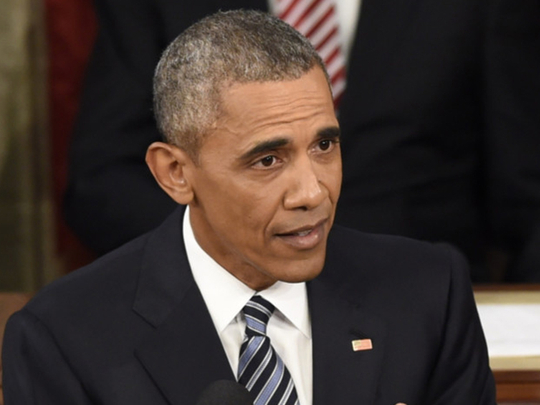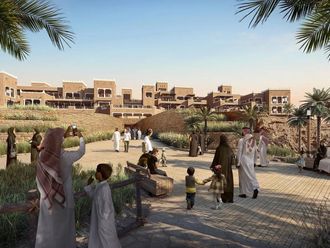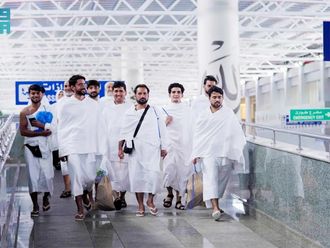
Washington: US President Barack Obama will visit Saudi King Salman Bin Abdul Aziz and the Saudi royal court in Riyadh next week in a bid to mend increasingly frayed ties between the allies.
Before his election, Obama famously dismissed Saudi Arabia as America’s “so-called ally” and relations have remained tense through both his two terms.
The United States and its Gulf partners have had differences over how best to address conflicts in the region — particularly those with Iran.
An article in The Atlantic last month brought some of that tension into the open, including comments from Obama about “free riders” — countries that don’t “carry their weight” in conflicts.
Ben Rhodes, Obama’s deputy national security adviser, did not back away from the comments, which he said Obama had made publicly and privately before.
“The only way to truly deal with global challenges is if everybody does their part,” Rhodes told reporters on a conference call on Thursday.
Although Wednesday’s visit will be his fourth to the kingdom, the Saudis were dismayed by his outreach to Iran and support for some Arab Spring revolts.
The countries work together in the fight against Daesh, but the kingdom feels Obama could have been tougher on Syria’s Bashar Al Assad.
And eyebrows were raised last year when King Salman decided not to join a summit of Gulf leaders hosted by Obama at his Camp David country residence.
But senior Obama adviser Rob Malley said that since then, there has been real progress in the relationship.
“On the security front, over the last 12 months, there have been countless meetings at all levels,” he said.
After Wednesday’s royal audience, Obama and King Salman will meet leaders of the Gulf Cooperation Council, the powerful regional grouping.
Secretary of Defence Ashton Carter will meet his counterparts just before the summit, on Wednesday, the White House said.
“As you’ll hear more coming out of the summit, there’s been agreements reached to increase our cooperation on counterterrorism, streamlining the transfer of critical defence capabilities to our GCC partners, bolstering GCC ballistic defence ... systems, and defending against the cyber-threat,” said Malley.
“There has been much deeper cooperation between us and the GCC,” Malley argued, citing efforts to stabilise regional conflicts in Libya and Yemen.
“There is still much more work to be done. But in Yemen, the situation is far better than it was a year ago,” he said, citing a ceasefire that began Sunday.
“Likewise in Syria, there is a fragile cessation of hostilities, but it has held so far for seven weeks,” he said, admitting: “Much more needs to be done.”
The discussion will be “less about large sales of defence systems” and more about expanding Gulf nations’ ability to “confront asymmetric threats,” Rhodes said.
Obama also wants to hear about ideas from King Salman and other leaders for dealing with economic issues in an era of low oil prices, Malley said.
Obama will leave Riyadh on Thursday night and fly on to Britain and then to Germany.












